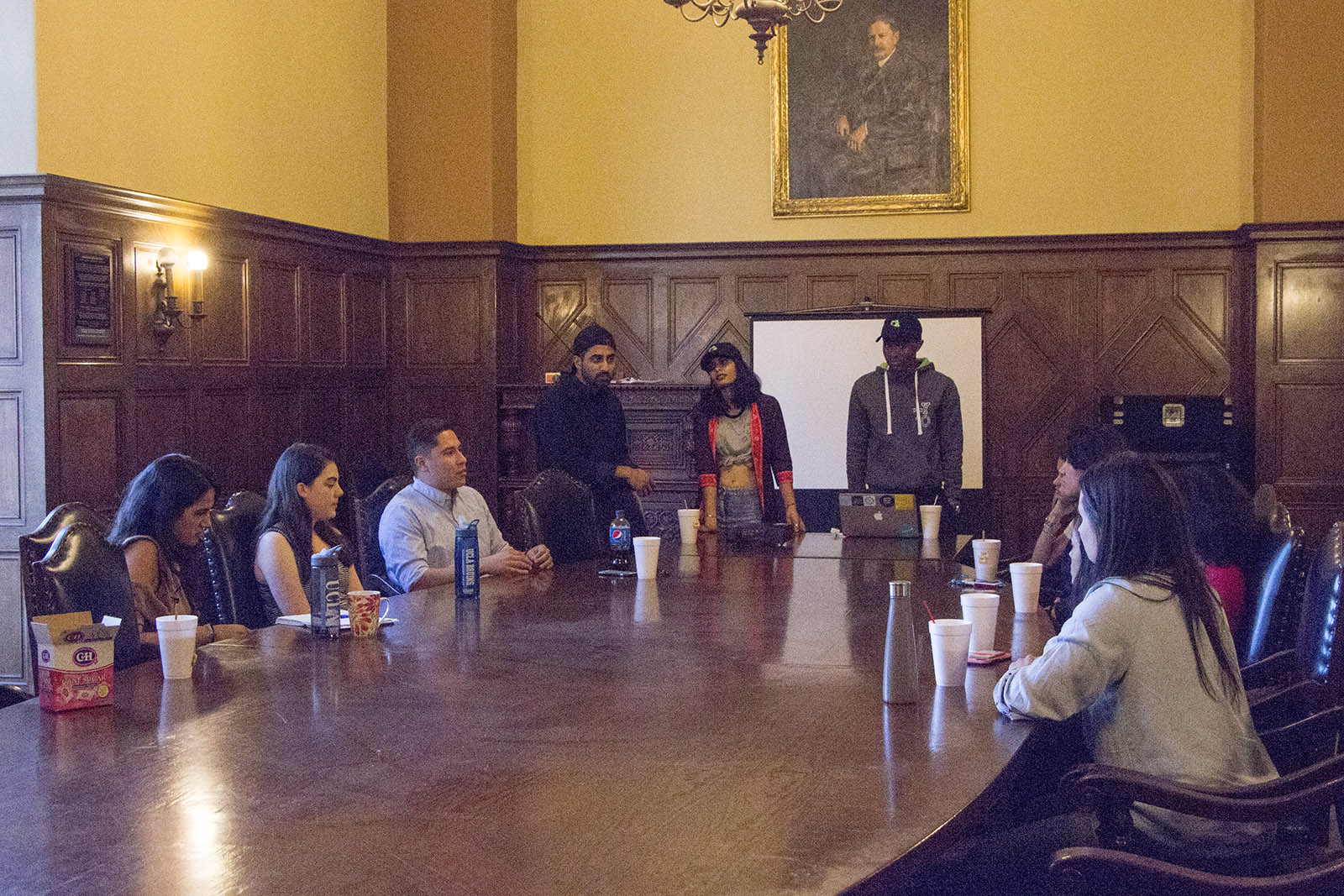Sigma C.H.A.I. aims to promote inclusivity among UCLA communities

Students discuss what builds the best relationships in the first meeting of Sigma C.H.A.I. (Yixuan Gong/Daily Bruin)
By Raevyn Walker
Jan. 29, 2017 9:10 p.m.
Students can drink chai and chat about how to make UCLA a more inclusive campus in a new organization called Sigma C.H.A.I.
Undergraduate Students Association Council’s General Representative 3 Inan Chowdhury launched Sigma C.H.A.I., or Coalition of Humans Against Inequality, on Friday. Students who participate in the program will discuss one controversial issue per week in an open caucus-style meeting in Kerckhoff 417.
In his candidate statement in spring, Chowdhury promised to promote inclusivity on campus. Sigma C.H.A.I. was one of his platforms, and he presented it as a United Nations-style forum to facilitate more discussion on campus.
Chowdhury said he wants Sigma C.H.A.I. to act as a multicultural center, which he thinks UCLA does not have.
The officers of the group invited students from fraternities, sororities and cultural organizations to the first session. At Friday’s meeting, about a dozen students talked about relationships in the millennial community and how technology can either inhibit or provoke communication.
Jabril Muhammad, a Sigma C.H.A.I. officer and third-year sociology student, said he thinks Sigma C.H.A.I.’s discussions will be necessary on campus because simply increasing diversity is not enough to end prejudice.
“You can’t just throw a bunch of people on a relatively diverse campus and ask for them to create a flourishing multicultural environment,” Muhammad said. “It just doesn’t make sense because we have not been given the tools to build relationships across identities.”
Muhammad said he believes Sigma C.H.A.I. will give students these tools.
Chowdhury said the campaign’s name purposefully sounds like a fraternity chapter because he wants to build community and promote the club, especially to members of Greek life. The group has gone door-to-door on fraternity row to introduce the program to Greek members.
“I want this to be a space for students who don’t feel comfortable with the Greek institution as well,” Chowdhury added. “But the Greek system does have advantages. … People find a community, and that community structure is what we are really trying to capture.”
Anandamayee Singh, a Sigma C.H.A.I. officer and third-year English student, said Greek life members should get involved in Sigma C.H.A.I. because many chapters have claimed they would like to become more inclusive.
Muhammad said he acknowledges Sigma C.H.A.I. may not be unique in its ambitions, but he thinks this would not take away from its effectiveness.
“Yes, people can have conversations on their own,” Muhammad said. “They have the ability to, but who’s doing it?”
The first meeting will serve as an introduction to students on terminology that is prevalent in conversations on gender, race and religion.
Students said they think Sigma C.H.A.I. will help combat inequality and racism at UCLA.
Diana Amador, a first-year human biology and society student, said she thought the program was necessary because racism still persists on campus, but it is not enough.
“I feel that we should get these talks on a larger basis,” Amador said. “I don’t think it should be forced upon everyone, but it is something that all students should have to hear at least once so they are aware.”
Karina Michel, a first-year biology student, said she thinks the program is a good idea, but it could be more effective if it occurred more frequently.
“A group like this is very much needed,” Michel said. “Hearing that it’s only once a week makes it sound like less of a priority, though.”
Keyana Colvin, a first-year psychology student, said she thinks Sigma C.H.A.I. will lead to frequent discussions, but it should be followed by action for change to happen.
Chowdhury said he hopes the program will steep more understanding into regular discussions among students.
“We are all individual cups of tea,” Chowdhury said. “All tea is made of water, just how we are all human, living things. Beyond that, the sugar and the spices make up our individual cup of chai, and the point of this is to share that with other people.”

